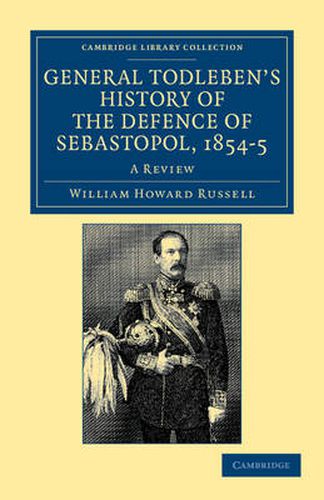Readings Newsletter
Become a Readings Member to make your shopping experience even easier.
Sign in or sign up for free!
You’re not far away from qualifying for FREE standard shipping within Australia
You’ve qualified for FREE standard shipping within Australia
The cart is loading…






The journalist William Howard Russell (1820-1907) is sometimes regarded as being the first war correspondent, and his reports from the conflict in the Crimea are also credited with being a cause of reforms made to the British military system. This 1865 book began as a review in The Times of the five-volume work of General Eduard Todleben (or Totleben), the military engineer and Russian Army General, whose work in creating and continually adapting the land defences of Sevastopol in 1854-5 made him a hero and enabled the fortress to hold out against British bombardment for a whole year. Russell added extracts from the original book to his review, and enlarged his commentary on the Russian text, producing a thorough and accurate synthesis, but always highlighting the central importance of the Russian work to any student of the history of the Sevastopol siege.
$9.00 standard shipping within Australia
FREE standard shipping within Australia for orders over $100.00
Express & International shipping calculated at checkout
The journalist William Howard Russell (1820-1907) is sometimes regarded as being the first war correspondent, and his reports from the conflict in the Crimea are also credited with being a cause of reforms made to the British military system. This 1865 book began as a review in The Times of the five-volume work of General Eduard Todleben (or Totleben), the military engineer and Russian Army General, whose work in creating and continually adapting the land defences of Sevastopol in 1854-5 made him a hero and enabled the fortress to hold out against British bombardment for a whole year. Russell added extracts from the original book to his review, and enlarged his commentary on the Russian text, producing a thorough and accurate synthesis, but always highlighting the central importance of the Russian work to any student of the history of the Sevastopol siege.